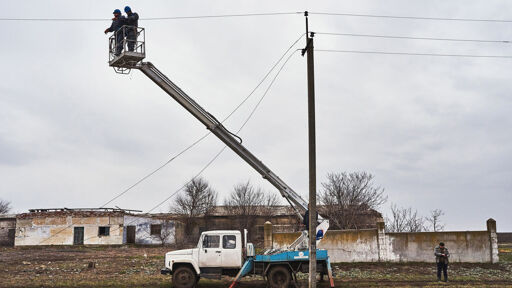- cross-posted to:
- [email protected]
- [email protected]
- [email protected]
- cross-posted to:
- [email protected]
- [email protected]
- [email protected]
When traditionally neutral outlet The Economist says Russia is the economic loser in this, you know it’s bad for Russia.
It’s a good writeup (as one would expect) but Ukraine isn’t in a great spot – the reason they’re better off than Russia is because Russia is a complete clusterfuck.
It’s not, but the stuff that they talk about the super smart things Ukrainians are doing to retool their economy during the war is really amazing.
I’m rooting for Ukraine but with donvict taking office it’s not looking great. I’m fully expecting all US support to be cut off as soon as he can manage it (just like his puppet master Putin has ordered), and unless one of the EU countries steps in to fill that gap it’s going to get rough over there. Well, rougher. I’m afraid Ukraine might actually be forced into accepting a surrender condition that lets Russia retain all the land they’ve taken, although that could be partially mitigated by Ukraine being let into NATO. On the other hand I’m not sure how much ability Trump will have to block Ukraine’s NATO membership but if he has any ability to do so at all I expect him to do just that.
a surrender condition that lets Russia retain all the land they’ve taken
A while ago there was a prediction about the true intentions of the russia negotiating: they want to stop Ukraine from succeeding as a state, since that would be a bad omen for a neighbouring kleptocracy.
If this prediction comes true the outcome you describe is actually very unlikely, because the russia would rather continue fighting just to keep the region in shambles.Possibly although I’ve heard a few different theories about what Russia really wants. One theory is that their goal was to get their hands on Ukraine’s lithium mines since the value of gas and oil is declining while lithium is rising.
In either case what Russia wanted and what they’re capable of achieving right now are two different things. It seems highly unlikely that Russia is capable of a complete military victory and occupation of Ukraine at this point, at least not without pulling their armed forces off most of their border, something Putin very much does not want to do. This entire thing has turned into a giant quagmire for Russia as originally they expected this to play out as a fast blitz to seize the capital and instead they got dragged into a prolonged siege that has severely weakened their military not to mention exposed exactly how shabby and 3rd rate it is.
Considering the rocky position Putin is in now no matter his original intent he may consider it worth while to take the small gains he has made and quit while he’s ahead. If he believes he can prevent Ukraine from joining NATO then he can always just re-invade in the future after he’s reinforced his troops and replenished his weapons stockpiles.
The Economist isn’t neutral. Quite the opposite: they pride themselves on being opinionated. They might seem neutral only because those opinions regularly cross the traditional US left/right divide (e.g., they were one of the mainstream news outlets talking about Biden’s diminishing faculties long before his meltdown).
Their op ed section, yes. Their news and investigative articles, no. They are well-known for their factual reporting that tends to be free from bias.
Most major media outlets have op ed sections. That really is not what people are talking about when they call a news source a neutral outlet.
The Economist mixes snarky comments and snippets of opinion into their coverage to a much greater extent than other media outlets. Their “opinion” pieces (leaders) are sometimes just a truncated version of the longer “news” article later in the issue.
Not saying it’s a bad thing; they’re pretty open about it and that’s how they’ve always been.
This is materially incorrect in multiple ways.
- The Economist’s reporting is widely recognized for its absence of bias.
- Leaders are not opinion pieces, they are brief overviews, hence why they seem like “truncated versions” of articles.
- The “snippets of opinion” to which you refer are reporting on public opinion. I thought that was obvious.
Leafing through the latest issue, here’s a random article:
The Biden administration pursued a mistaken policy on LNG exports.
This is not a leader, but in the news section. In the contents:
Despite her reassuring tone, this was a sharp-elbowed effort to place an obstacle in the way of the incoming Trump administration… Mr Biden bowed to election-year pressure from the subset of environmentalists hostile to LNG… As for the claim that increasing American lng would help China, it is politically clever, playing as it does on anti-China sentiment in Washington, dc, but energetically dumb…
Look, again, I’m not castigating The Economist here. They have a particular way to present news, and their readership knows it. But they definitely do not try to be “neutral” in the way other outlets do.
Paywall
archive.today
No they aren’t.





